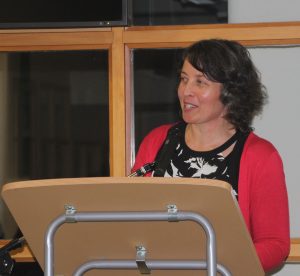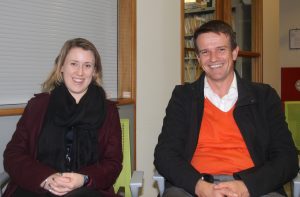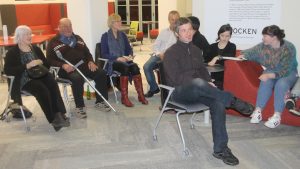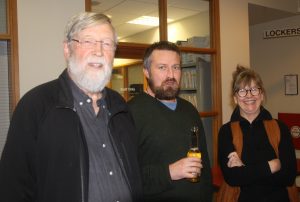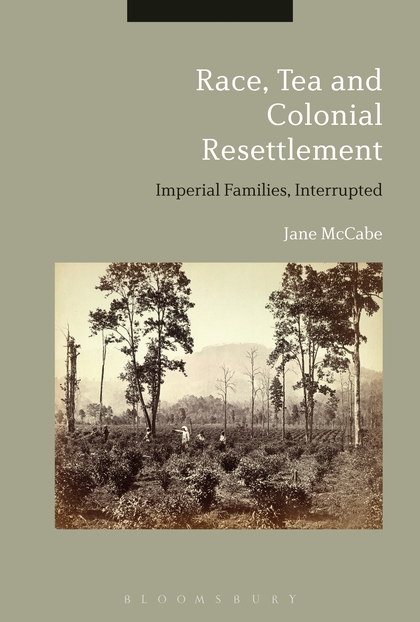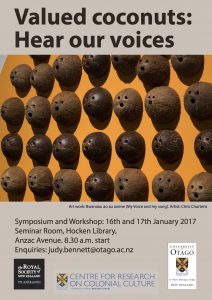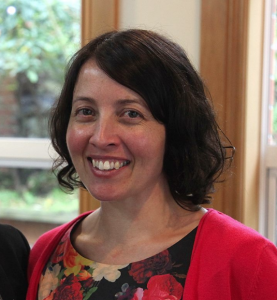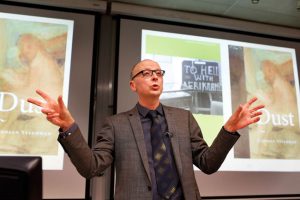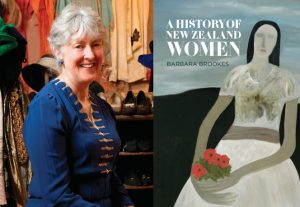Te Tumu seminar today
A seminar being held today in Te Tumu may be of interest to CROCC subscribers. Tahu Pōtiki (Kāi Tahi, Kāti Mamoe) of Ōtākou Marae, former CEO of Te Rūnanga o Ngāi Tahu (TRONT), will be presenting on “Ka aru tātou i te aha? What are we pursuing, what is the outcome?”
Where: R3S10 (on third floor of Te Tumu, University of Otago)
When: 2.00 pm, Wednesday 4 October.
Abstract: Has the development of the Ngāi Tahu policy framework created a new identity?
Since 1998, Ngāi Tahu has grown demographically, in size and structure. Marae and kāinga have been significantly made-over. The iwi is well known as a successful tribe and business. Tahu Pōtiki has been integrally involved within his iwi, hapū and whānau for his lifetime. In this seminar he will discuss how the Ngāi Tahu policy framework has created a new identity. He will critique key policy initiatives that he was fundamental in instigating.
All interested people are welcome to attend.
Jane McCabe’s new book on Indian migrants
Last Thursday saw the successful launch of Jane McCabe’s new book, Race, Tea and Colonial Resettlement: Imperial Families, Interrupted at the Hocken Collections. Launched by Centre Co-director, Angela Wanhalla, this monograph (published by Bloomsbury) explores the experiences of the “Kalimpong Kids”, mixed-race children of tea planters in India, from their missionary-run boarding school, to their migration to New Zealand. Jane is descended of one of the children, and a number of other descendants came to the launch.
Jane, who works in the Department of History and Art History is a keen member of the Centre for Research on Colonial Culture. A Marsden Grant recipient, she is now researching land and inheritance in Aotearoa New Zealand.
Centre Refunded
It is great news that the University of Otago has refunded the Centre for Research on Colonial Culture for a further five years, one of just twelve “flagship research centres”.
As Deputy Vice-Chancellor (Research and Enterprise) Professor Richard Blaikie noted, the University’s funding and other support of its flagship research centres and research themes is an important way of ensuring the internationally outstanding work of its researchers, across a wide range disciplines, is encouraged and nurtured. “We recognise that our researchers in these centres and themes are often world-leading in many areas and we are pleased to be able to back them to pursue excellence in their fields.”
The Centre now has two co-directors, Professor Tony Ballantyne and Associate Professor Angela Wanhalla. A number of events are planned over the coming years, about which information will be forthcoming soon.
New Book on Religious Childhoods
Creating Religious Childhoods in Anglo-world and British Colonial Contexts, 1800-1950 is a new co-edited collection from Centre member, Hugh Morrison, and Mary Clare Martin (Greenwich University, UK). This new book, published by Routledge, features children and religion in colonial society contexts such as New Zealand, and aims to develop greater understanding of religion as a critical element of modern children’s and young people’s history.
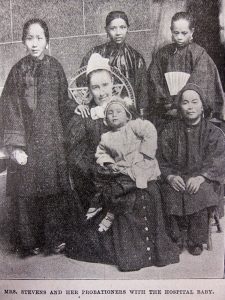
‘Mrs Stevens and her probationers with the hospital baby’, alongside article by Mary Budden, ‘Almora Christian Families’, in LMS Chronicle, July 1895, p. 182 (from Chapter 1, p. 27)
Arguing that religion was an abiding influence (positive, negative and benign) among British-world children throughout the nineteenth century and much of the twentieth, the book places ‘religion’ at the centre of analysis and discussion, while at the same time positioning the religious factor within a broader social and cultural framework. Essays written by an international grouping of scholars focus on a range of geographical settings: America, Australia, Britain, Canada, Fiji, India, New Zealand, South Africa and the South Pacific. The various contexts within which religion shaped childhood in these settings – mission fields, churches, families, communities, institutions, camps, schools and youth movements – are treated as ‘sites’ in which religion contributed to identity formation, albeit in different ways relating to such factors as empire, nation, gender, race, disability and denomination. Chapters on New Zealand include: an examination of southern Dunedin’s religious identity; children’s religious literature published by A.H. & A.W. Reed; and the ways in which religious identity was conflated with civic qualities of sacrifice and service.
Rage Against the Machine Symposium
On April 8, Victoria University is hosting the symposium Rage Against the Machine: Biopolitics, Individualism and Collectivism in 19th Century New Zealand and the British Empire in Wellington.
At the event, discussion is invited around the subject of the current comparative research project on individualism vs collectivism of Fulbright Scholar Anna Clark (University of Minnesota). Responses to the themes, topics and questions posed by the project are warmly invited.
For more information on Professor Clark’s project and the symposium, click: RageAgainsttheMachineSymposium
VUW Contact: Charlotte Macdonald, tel + 64 4 463 6761, charlotte.macdonald@vuw.ac.nz.
REMINDER: CFP, Film in the Colony Symposium
Don’t forget the Film in the Colony Symposium, to be held in Wellington, 13-14 July.
If you are interested in presenting a paper, send a 200-word abstract and a brief bio to: filminthecolony@otago.ac.nz by 28 February 2017.
Valued Coconuts
Scholars in Pacific history and culture met to share their knowledge on the use and economies of the coconut in a symposium on Monday and Tuesday this week in Dunedin, the first event in what looks like a busy year for the Centre. Professor Judy Bennett organised and hosted the Valued Coconuts: Hear Our Voices symposium and workshop as part of her Marsden project, Constant Coconuts: A History of a Versatile Commodity in the Pacific, and with support from CROCC.
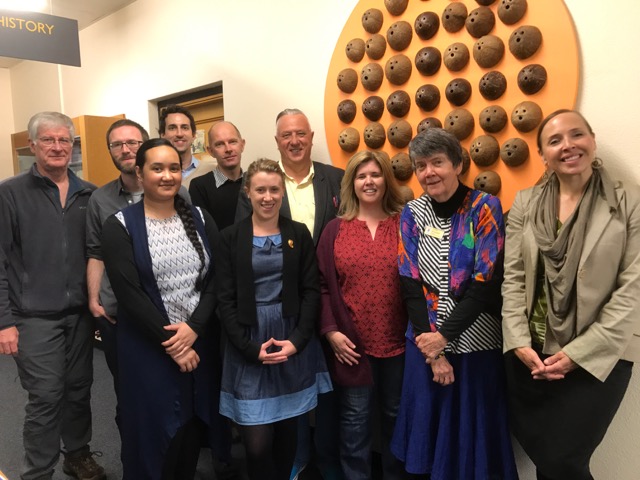
From left: Steve Talley, Josh Levy, Toaga Alefosio, Holger Droessler, Adrian Muckle, Kate Stevens, Lachy Paterson, Angela Wanhalla, Judy Bennett and April Henderson.
Valued Coconuts was a pre-read workshop featuring six papers. April Henderson and Toaga Alefosio’s (Victoria University of Wellington), On Skin and Bone: Samoan Coconut Oil in Indigenous Practice discussed how coconut oil is used in the continuing Samoan practices of fofō (healing massage), samaga (tattooing) and liutofaga (cleaning of ancestors’ bones) and the meaning for people today. This paper comes of out of summer scholarship for Toanga (who will be an Honours student this year) and April’s current research on virgin coconut oil use, “Kernals of Hope: Following Coconut Commodities from the Pacific to the West” supported by a Royal Society of New Zealand Marsden grant. In the second paper, Wasting coconuts? Consumption versus commerce in Wallis and Futuna, Kate Stevens discussed how French colonisers’ desire for scientific production of copra clashed with the Indigenous people’s views on the value of coconuts. Kate is a postdoc in Otago’s Department of History and Art History, working with Judy on their Marsden project.
Josh Levy is a PhD student at University of Illinois, Urbana-Champaign, who is researching the successive colonial regimes on Pohnpei through food history. His paper, Ideal coconut country: Persuasive coconuts and the scientific plantation in Pohnpei, Micronesia, looked at the German colonial period and the effects of copra production on the Pohnpeian population. Steve Talley, an Otago PhD student’s paper set to Defining indigenous entrepreneurship in the New Hebrides copra trade, and how the opportunities and constraints of the French and British rule moderated the Indigenous peoples’ engagement in the coconut trade.
Holger Droessler‘s Coconuts in Samoa explored how the cultivation of coconuts and production of copra mediated the German colonisers’ attitudes to Samoans, and how Samoans were able to maintain a subsistence economy despite the German desire for greater productivity. Holger is a Visiting Assistant Professor of History at Bard College in New York state. In the last paper, Judy Bennett’s Voices of Rotuma: Enduring Refrain examined the copra trade of Rotuma both in the colonial and post-colonial eras and tensions brought about through the necessity of having to ship its copra through Fiji.
Centre members, Angela Wanhalla and Lachy Paterson, acted as commentators for these papers alongside Adrian Muckle from Victoria University of Wellington. The format of the symposium allowed for extensive discussion of the papers; the plan at this stage is for all the papers to be incorporated into a special journal issue. Thanks to the Hocken Collections for providing the venue for the event, and for the tour of some of their Pacific material. Thanks also to the Otago Museum for a tour of some of its coconut-related holdings.
CROCC Seminar: Ryan Tucker Jones
A Whale of a Difference
Changing Right Whale Culture and the Making of the Tasman World
The Centre is hosting Dr Ryan Tucker Jones of the University of Auckland who will be presenting a seminar on Tasman whaling history in relation to British encounters with Māori and Australian Aborigines.
This will be held: 11am-12.30pm, Tuesday 29 November, History Seminar Room (Burns 2N8). Please feel free to come.
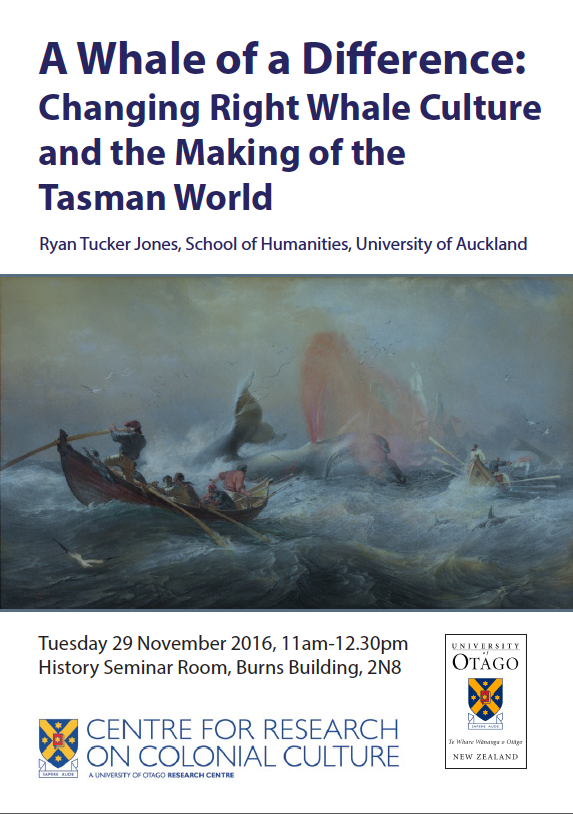 Abstract: “This paper examines the impact that changing right whale cultures had on cross-cultural encounters between British colonists, Aboriginal peoples, and Māori in Australia and New Zealand during the era of bay whaling, c.1805-1850. I argue that historians must take seriously the ways that environments (especially living environments) change in order to understand colonial and indigenous histories, and that comparative histories across the Tasman offers an ideal way to think through and document this history.”
Abstract: “This paper examines the impact that changing right whale cultures had on cross-cultural encounters between British colonists, Aboriginal peoples, and Māori in Australia and New Zealand during the era of bay whaling, c.1805-1850. I argue that historians must take seriously the ways that environments (especially living environments) change in order to understand colonial and indigenous histories, and that comparative histories across the Tasman offers an ideal way to think through and document this history.”
Launch of New Book on New Zealand’s Overseas Missions
Come along to help launch and celebrate Dr Hugh Morrison’s new book, Pushing the Boundaries: New Zealand Protestants and Overseas Missions, 1827-1939, at the University Book Shop (Great King Street), Friday 8th April, at 5.30pm.
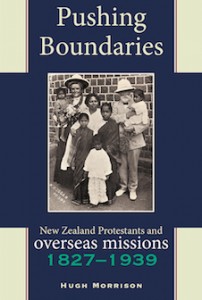 Published by Otago University Press, “Pushing Boundaries is the first book-length attempt to tell the story of the evolution of overseas missionary activity by New Zealand’s Protestant churches from the early nineteenth century up to World War II. In this thought-provoking book, Hugh Morrison outlines how and why missions became important to colonial churches – the theological and social reasons churches supported missions, how their ideas were shaped, and what motivated individual New Zealanders to leave these shores to devote their lives elsewhere.
Published by Otago University Press, “Pushing Boundaries is the first book-length attempt to tell the story of the evolution of overseas missionary activity by New Zealand’s Protestant churches from the early nineteenth century up to World War II. In this thought-provoking book, Hugh Morrison outlines how and why missions became important to colonial churches – the theological and social reasons churches supported missions, how their ideas were shaped, and what motivated individual New Zealanders to leave these shores to devote their lives elsewhere.
“Secondly, he connects this local story to some larger historical themes – of gender, culture, empire, childhood and education. This book argues that understanding the overseas missionary activity of Protestant churches and groups can contribute to a more general understanding of how New Zealand has developed as a society and nation.”
Hugh is a historian of missiology, a member of the Centre for Research on Colonial Culture, and a staff member at the College of Education, University of Otago.

